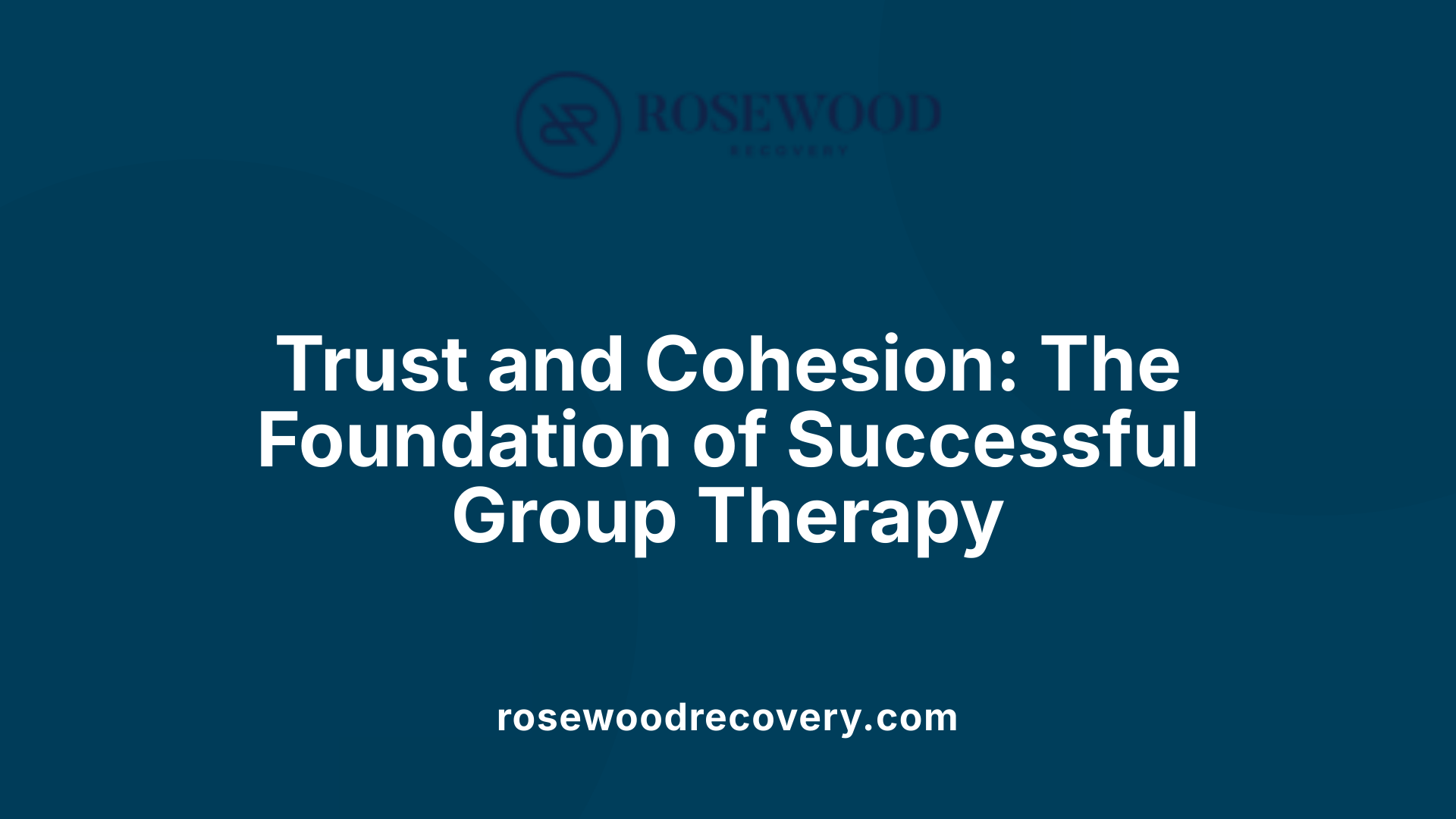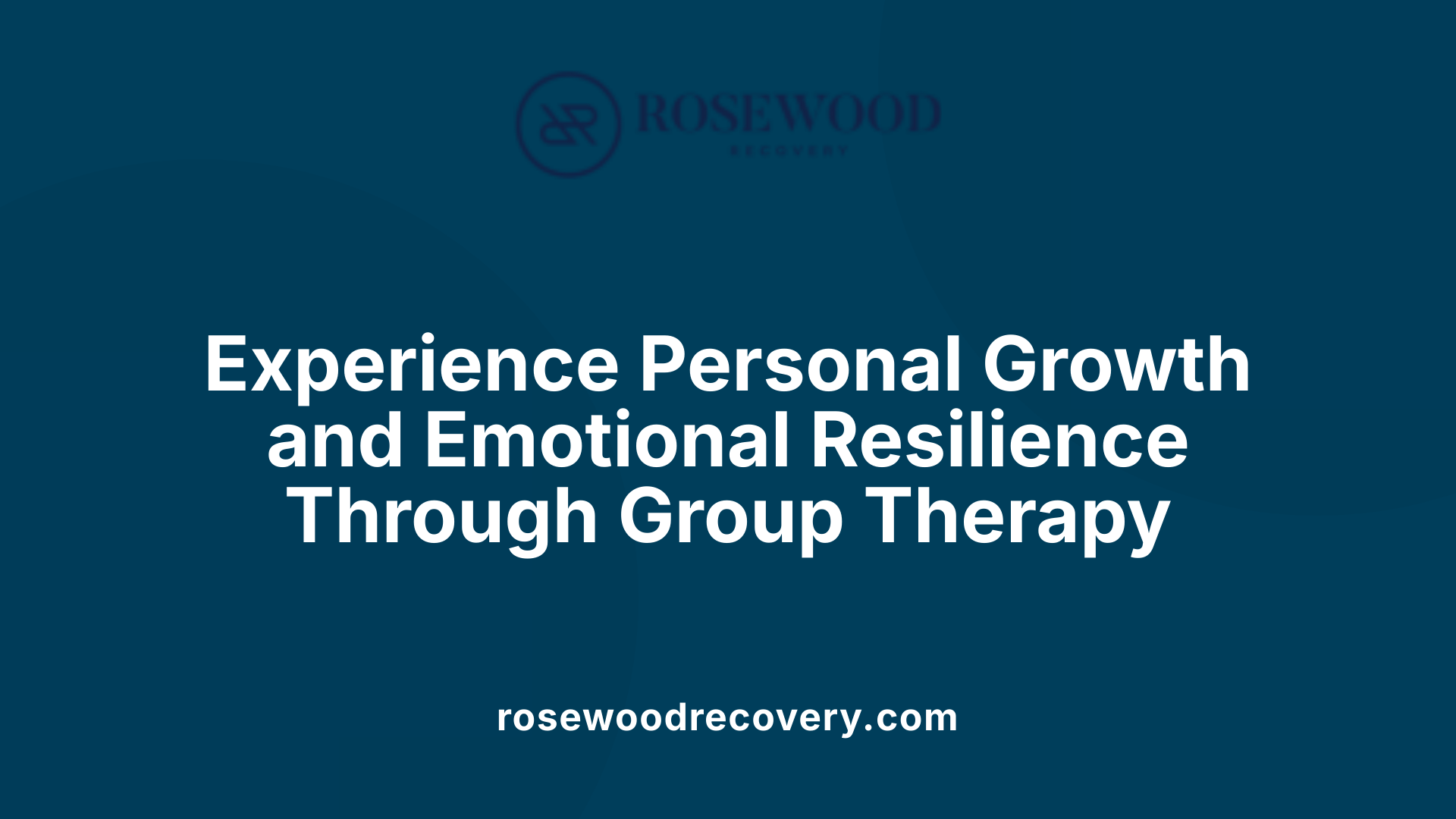Understanding the Significance of Consistent Attendance in Group Therapy
Consistent attendance in group sessions is the cornerstone of effective therapy and personal growth. It fosters trust, enhances therapeutic relationships, and ensures that progress is steady and measurable. This article explores why maintaining regular participation in group sessions is vital for maximizing outcomes and sustaining mental health improvements.
The Foundations of Effective Group Therapy: Trust and Cohesion

How does consistency build trust among group members and with the therapist?
Regular attendance in group therapy sessions is fundamental for cultivating a sense of trust. When participants show up consistently, they demonstrate commitment and reliability, which encourages others to feel safe sharing their personal experiences.
Over time, this predictability fosters a secure environment where vulnerable conversations can flourish. Trust develops as group members see that their peers and therapist are present, attentive, and supportive.
This trust creates a strong foundation for open communication, which is essential for meaningful growth and healing.
The role of regular attendance in fostering group cohesion
Cohesion refers to the sense of belonging and connection within the group. Attending sessions on a consistent basis helps members build relationships, understand others’ perspectives, and develop empathy.
Regular participation reinforces shared experiences and collective learning, strengthening the bond among group members.
This cohesion enhances motivation, encourages active participation, and nurtures a supportive environment. It also makes it easier to navigate difficult topics since members feel more connected and understood.
Why is consistency important in therapy?
Consistency creates a stable environment that promotes trust and understanding. It allows therapists to monitor progress and adjust interventions to meet individual and group needs.
Frequent, reliable sessions deepen the therapeutic relationship, which is crucial for dealing with personal struggles. It also helps reinforce new coping strategies and promotes ongoing personal growth.
Inconsistent attendance risks disrupting progress, weakening trust, and diminishing the group’s cohesion. Staying committed involves making emotional well-being a priority, leading to more effective and lasting outcomes.
How does consistency influence progress and outcomes in therapy and personal growth?
When clients attend sessions regularly, they reinforce skills learned and maintain momentum in their journey of healing. In group settings, this consistency fosters a sense of belonging and safety, which enhances collective and individual progress.
It allows for continuous assessment, timely intervention, and reinforcement of positive changes. Regularity also encourages the development of social skills, altruism, and hope—elements vital for long-term recovery.
Ultimately, sustained engagement accelerates growth, improves mental health outcomes, and supports resilient personal development.
The Impact of Consistent Attendance on Therapeutic Outcomes and Personal Development

How regular participation leads to tangible improvements in mental health
Consistently attending therapy sessions is fundamental in fostering meaningful change. Regular sessions enable therapists to monitor progress closely, tailor interventions, and reinforce coping strategies effectively. Over time, clients develop greater self-awareness and insight, which are crucial for personal growth. Repeated practice of learned skills during ongoing therapy helps solidify positive behaviors, reduce symptoms of conditions such as anxiety, depression, or PTSD, and promote long-term stability.
The connection between attendance frequency and effectiveness of intervention strategies
Frequency matters when it comes to intervention success. Attending therapy weekly, especially in the early stages, maximizes the therapeutic relationship’s strength and accelerates progress. Regularly spaced sessions ensure that emotional wounds are addressed promptly, preventing setbacks and deepening trust between client and therapist. Consistent attendance also allows for the timely adjustment of strategies, making interventions more effective and personalized.
Why is maintaining regular participation important in health, fitness, or behavioral interventions?
Maintaining regular participation is essential because it guarantees continuous health benefits. For physical health, consistent activity like exercise strengthens muscles, bones, and cardiovascular systems, and supports metabolic health. For mental health, ongoing engagement in therapies or behavioral interventions reduces stress, anxiety, and depressive symptoms. Regular routines embed healthy habits, making sustained behavioral change more achievable and protecting against relapse.
How does consistency affect mental health?
A steady routine provides a sense of control and predictability, which can alleviate feelings of anxiety and stress. Regular activities such as sleep, exercise, and therapy foster emotional stability, boost mood, and improve overall mental clarity. Consistency in daily routines helps in managing emotional responses and supports resilience in challenging times, laying a stable foundation for mental well-being.
The Role of Routine and Punctuality in Therapy Success

Why is consistency important in therapy?
Consistency forms the foundation of effective therapy. Attending sessions regularly creates a stable, safe environment where clients can build trust with their therapists. This stable routine allows therapists to track progress accurately, adjust interventions, and address core issues more effectively. When clients maintain regular attendance, they are more likely to share personal struggles openly, which is essential for meaningful change.
Infrequent or irregular sessions can cause delays in treatment progress, weaken the therapeutic relationship, and lead to disengagement. A consistent schedule reinforces commitment, enhances rapport, and ensures that therapy remains a cohesive process conducive to long-term growth. Overall, staying committed to therapy appointments maximizes its potential benefits and facilitates lasting personal development.
How does consistency influence progress and outcomes in therapy and personal growth?
Regular participation in therapy—whether one-on-one, group, or physical—drives progress by reinforcing new skills and maintaining the momentum of treatment. Consistent attendance allows for continuous assessment, timely interventions, and adjustments, directly impacting the effectiveness of the process.
In group settings, consistency builds cohesion and trust among participants, fostering a supportive environment where individuals feel understood and validated. This regular engagement promotes shared healing, social learning, and the development of interpersonal skills. Moreover, persistent participation strengthens coping strategies, encourages neuroplasticity, and enhances emotional regulation.
Ultimately, being consistent ensures sustained engagement, accelerates recovery, and helps individuals achieve their personal growth goals more effectively. Regular therapy not only addresses current issues but also lays the groundwork for ongoing resilience and well-being.
How Group Therapy Benefits Personal Growth and Emotional Well-being

What are the benefits of group therapy?
Group therapy offers a structured, confidential environment where participants are encouraged to actively share, listen, and empathize with others. This setting provides support and validation, helping individuals feel understood and less isolated.
One of the major advantages is the diversity of perspectives. Different viewpoints promote learning and help clients see their issues from new angles. Additionally, group therapy fosters skill development, such as communication, problem-solving, and emotional regulation.
It is also a cost-effective approach, making therapy accessible to more people. Importantly, group therapy allows members to practice and apply coping strategies in real-time, which enhances their effectiveness.
Shared experiences are fundamental in this context. They help create a sense of community and mutual understanding, which reduces feelings of stigma and loneliness.
Overall, these elements make group therapy a powerful avenue for personal growth and emotional resilience, supporting individuals in overcoming challenges and fostering well-being.
How does consistency enhance group therapy outcomes?
Attending group therapy sessions regularly builds trust among members and deepens social bonds. Consistency encourages a sense of belonging, where participants feel safe to share vulnerabilities and hold others’ experiences with respect.
Regular attendance also helps reinforce learning from each session, enabling better retention and integration of new insights and skills. This ongoing engagement sustains momentum for growth and progress.
When members commit to attending consistently, they experience a more cohesive group dynamic, which enhances the therapeutic process. Trust and familiarity grow stronger, making the environment more supportive.
Moreover, steady participation allows the group to work through issues gradually and effectively, leading to more meaningful and lasting changes in emotional well-being. Overall, persistence in attendance maximizes the benefits of group therapy for everyone involved.
Physical and Mental Health Gains Through Consistency
 Maintaining regular participation in physical movements and behavioral practices plays a vital role in achieving sustained health benefits. When individuals consistently engage in activities like exercise, therapy, or skill development, they reinforce positive habits, ensuring ongoing progress.
Maintaining regular participation in physical movements and behavioral practices plays a vital role in achieving sustained health benefits. When individuals consistently engage in activities like exercise, therapy, or skill development, they reinforce positive habits, ensuring ongoing progress.
Routine and persistence enable the body and mind to adapt effectively. For example, regular physical activity supports cardiovascular health, builds strength, and helps manage weight. Similarly, consistent mental health practices, such as therapy sessions or mindfulness exercises, foster emotional regulation and resilience.
Having a stable schedule creates a sense of control and predictability, reducing anxiety and emotional distress. When therapy or fitness routines become habitual, individuals are more likely to stick with them, leading to improvements that last over time.
The importance of routine in health and therapy is supported by research emphasizing that consistency helps in early detection of issues, prevents setbacks, and accelerates progress. It also facilitates the learning and reinforcement of new skills or coping strategies.
In summary, persistence through regular practice enhances overall well-being by embedding positive behaviors into daily life, making health gains more resilient and long-lasting.
Sustaining Growth Beyond Sessions
The consistent commitment to attending group sessions—whether in therapy, physical activity, or behavioral interventions—is fundamental to achieving and maintaining meaningful progress. It builds trust, fosters community, reinforces skills, and supports the ongoing journey of personal development. Whether the goal is mental health improvement, recovery, or overall well-being, regular participation ensures that each step taken is deliberate, impactful, and enduring.
References
- The Key to Effective Therapy: The Power of Consistency
- Consistency is Key: Understanding the Importance of Therapy
- Why Consistency is Key in Therapy: What the Research Says About ...
- Why Consistency in Therapy Sessions is Crucial for Recovery
- The Importance of Regular Attendance and Punctuality in Therapy
- Consistency is Key in Therapy - CW Psychological Services
- Frequency and Consistency: Two Key Factors to Results in Therapy
- The Power of Group Therapy: A Guide for Beginners




